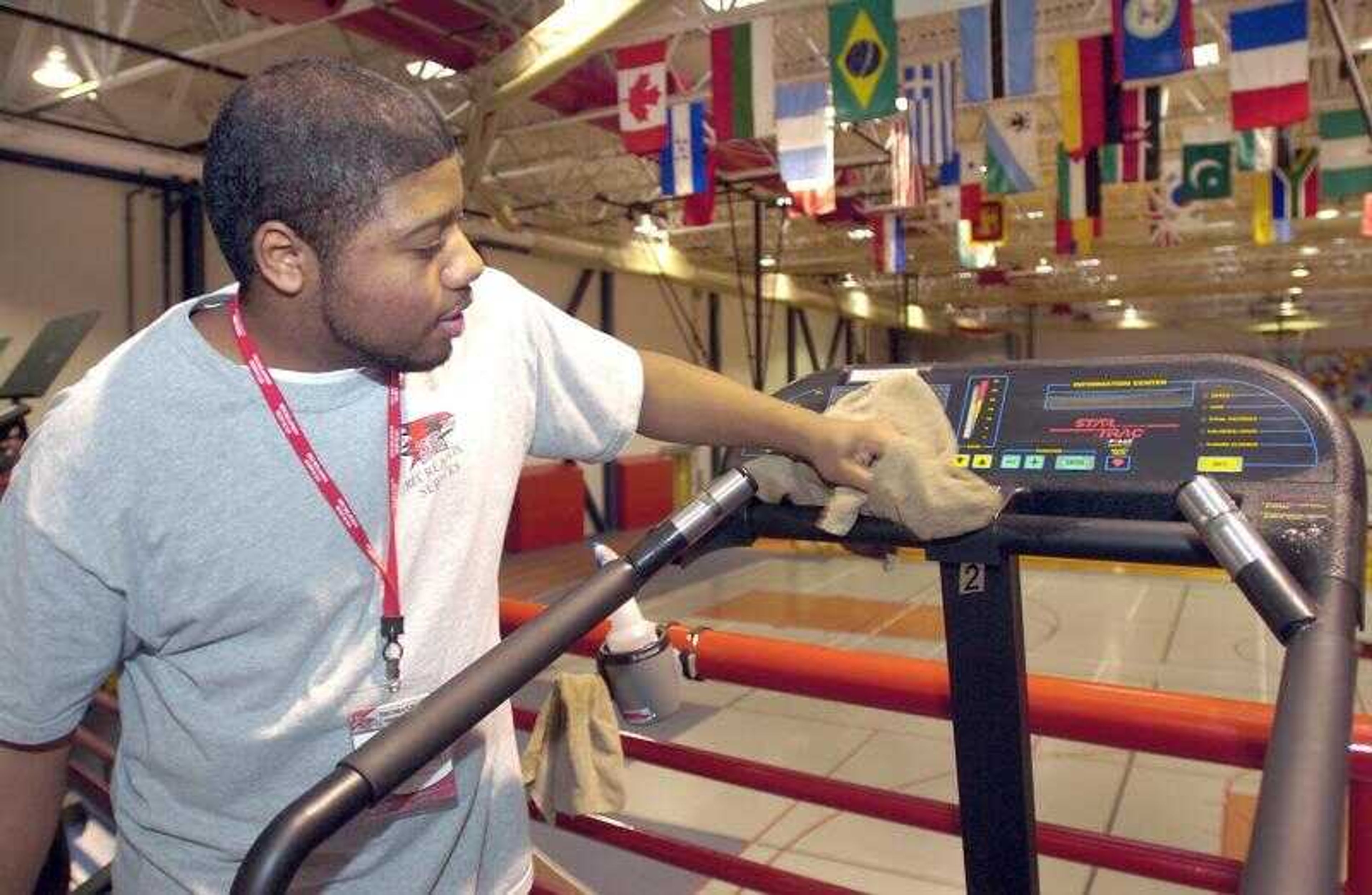Southeast's give and take
Hundreds of Southeast Missouri State University students will celebrate the new year with a pay raise, but the celebration could be short-lived. School officials say the voter-approved increase in the minimum wage in Missouri from $5.15 an hour to $6.50 an hour will add nearly half a million dollars to payroll costs over the course of a year. As a result, students may foot the bill in the form of higher tuition next school year, officials said...
Hundreds of Southeast Missouri State University students will celebrate the new year with a pay raise, but the celebration could be short-lived.
School officials say the voter-approved increase in the minimum wage in Missouri from $5.15 an hour to $6.50 an hour will add nearly half a million dollars to payroll costs over the course of a year. As a result, students may foot the bill in the form of higher tuition next school year, officials said.
While the university typically raises tuition each year, the wage expense could add another $2.50 per credit hour, school officials said.
But the increase takes effect Jan. 1 in the middle of the university's budget year, so the school will have to absorb the added cost over the next six months.
University president Dr. Ken Dobbins has instructed that $100,000 in one-time funds be used to help pay that cost. The money will come from salary savings realized by leaving positions unfilled or by employees taking unpaid leave, university budget director Mona Hughey said.
But that won't cover the approximately $225,000 needed over the next six months. "We don't expect to cover it all," she said.
University departments will have to cut costs to make up the difference, she said. Departments could put some purchases on hold or even reduce the number of hours students can work, Hughey said.
Missouri voters overwhelmingly approved in November a measure increasing the minimum wage.
Jim Cook, director of human resources at Southeast, said 90 temporary employees and 793 student workers will receive pay raises. That includes those making $5.15 an hour or more but less than $6.50 an hour.
Southeast currently has 310 students making the minimum wage. Students can work a maximum of 20 hours a week during the school year and up to 37.5 hours a week during the summer and school-year breaks.
"For a lot of students, that is their financial aid," Dobbins said.
Hughey hopes the legislature will boost the state appropriation next fiscal year to help state colleges fund the added wage costs.
However, state Sen. Jason Crowell, R-Cape Girardeau, said that won't happen.
"We don't budget that way," he said. "We give each university a pot of money."
Crowell said Southeast officials haven't talked to him about the minimum wage, but he knows state colleges will want more state money.
"I have never seen a university request less money," he said.
Southeast's Hughey said the wage measure approved by voters requires the minimum wage to increase annually at the rate of the consumer price index, adding even more to the university's personnel costs in the future.
The university's recreation services expects $8,000 to $12,000 in additional operating costs but no extra funds to cover the wage increase, director Troy Vaughn said.
Some 120 Southeast students work in recreation services, which is set up to pay for itself through student and usage fees.
Vaughn said his department plans to cut back on purchases such as replacing exercise equipment.
"We are not looking to cut staff," he said. "Certainly the budget will be incredibly tight this year."
Trenton Doss, 21, of St. Louis is a fourth-year student who works part time at the Student Recreation Center. "I could use the extra money," he said of his upcoming pay raise.
However, "I don't think we will be better off in the long run," he said last week as he cleaned exercise equipment. "You are just recycling the money, basically."
Fellow student worker Rasmus Pallesen, who is from Denmark, welcomes the pay raise.
Pallesen figures tuition will go up, but he believes he'll come out ahead, particularly during the spring semester when student fees will remain at the same level as the fall semester.
He currently makes $300 to $400 a month in his part-time job, money he uses to pay car and other expenses.
"I can make $50 to $100 more a month" with the wage increase, he said.
mbliss@semissourian.com
335-6611, extension 123
Connect with the Southeast Missourian Newsroom:
For corrections to this story or other insights for the editor, click here. To submit a letter to the editor, click here. To learn about the Southeast Missourian’s AI Policy, click here.











